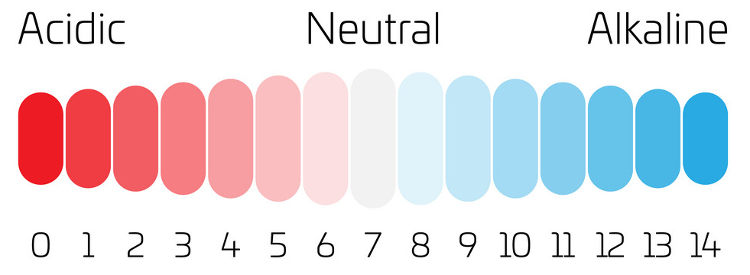What is pH?
pH is the measure of alkalinity and acidity in the soil. Soil pH is measured on a scale of 0-14. Neutral soil is a 7. Soil pH below 7 is acidic and soil pH above 7 is alkaline.

Why is soil pH important?
The pH of soil determines its ability to provide nutrients. If the pH isn’t correct for the plant type or grass, then the plant or turf will not absorb nutrients the way it needs to. The majority of plants prefer a soil pH between 6.0 and 7.0. Midwest turf grows better when soil pH is between 6.5 and 7.2.
All plants have a soil pH that they prefer. For some plants, the pH range can be quite broad. For other plants, the pH needs are very specific. Knowing the pH needs of the plants you are growing will go a long ways towards having a successful lawn or garden. If you know what the requirements of your turf or plants are, you can amend your soil to meet their needs.

Alternately, if you know the pH of your soil, you can plant types that will do well in that soil. Soil pH also affects how well pesticides will work, determines the mobility of heavy metals, and influences microbial activity.
What determines the pH of soil?
Minerals in the soil, climate, and temperature are the main natural determinants of soil pH. Soil that has been used for gardening or farming previously is affected by the use of fertilizers. In most cases, the soil has been acidified through the use of nitrogen-based fertilizers. In tidal flats and near mining locations where the soil has been drained, it is usually very acidic.
How do I test my soil pH?
There are a variety of ways to test the pH of your soil There are kits that can be purchased online or at garden stores at a minimal cost. The dye and paper strip kits are the least expensive and the best choice for hobby gardeners. Glass electrode meters are more expensive and may not be worth it for most gardeners. All these methods are simple to use and give immediate results.
How often should I test the pH?
The pH of your soil will change during the year. Temperature and moisture changes affect the soil and may raise or lower your soil’s pH by a whole unit of measurement. You should test your soil at least once a year and always test after you have amended it.
How do I change the pH of my soil?
To increase the pH of your soil, to make it more alkaline, add finely ground limestone to the soil. Finely ground limestone is absorbed faster by the soil than chunkier varieties. Limestone will react faster to the soil when the ground is moist and the temperature is warm. The amount of limestone you will need depends entirely on the current pH of your soil and the actual type of soil you have.
Adding a nitrogen fertilizer designed to increase the pH is also a good option. Not all nitrogen fertilizers are this type, so make sure you use the correct one.
To lower the pH of your soil, add a nitrogen fertilizer with anhydrous ammonia. Double check to make sure you are getting the correct one with ammonia since other nitrogen fertilizers will increase the pH.




